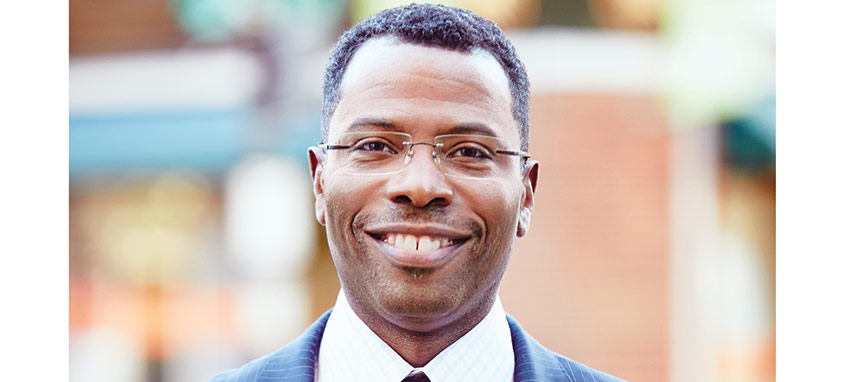Elliott Ferguson, president and CEO of Destination DC
What key features does the city offer to meeting planners and attendees?
Today’s meeting planners are looking for a value-added approach to the cities they choose, and D.C. is a place where sectors can thrive, including medical, bio/pharmaceutical, education and technology. D.C. is now considered a hub for technology and biotech/pharma, with a thriving startup community, venture capitalists and access to thought leaders, influencers and industry experts. We have the resources to enhance an organization’s business goals.
Walter E. Washington Convention Center is state of the art, and groups are close to excellent dining and attractions during downtime. We’re fortunate to have an extremely recognizable skyline, and we have incredible special-events venues where you can have a clear view of the U.S. Capitol Building, the White House and many other landmarks.
How does Washington, D.C., appeal to a diverse visitor base?
Washington, D.C., has worldwide appeal, and visitors enjoy all the perks of a world-class destination. The volume of free activities, including access to some of our nation’s most renowned cultural attractions, is a huge draw. Washington offers an international metropolitan center that is the perfect backdrop for vacations and successful meetings, conventions and events.
We also have one of the most exciting dining scenes in the country, having just been named Hottest Restaurant City of the Year by Bon Appetit and No. 1 Food City of 2016 by Zagat. Many people know D.C. for what I call the three M’s—monuments, museums and memorials. It’s our goal to show them the D.C. beyond that, full of arts and culture, cuisine, nightlife, sports, shopping, theater and more.
How have recent development projects increased the city’s appeal as a meetings destination?
The additional inventory coming online in D.C. is definitely attractive for conventions and meetings. The new product comes at multiple price points and throughout diverse neighborhoods in our city, including the Southwest Waterfront, NoMa and Shaw. People in town for business will have more flexibility in terms of where to stay and more areas of the city to explore, especially with the maneuverability our public transportation system provides.
Recent hotel openings include Trump International Hotel; The Watergate Hotel, which reopened after a $125 million renovation; and new Kimpton properties in the 14th Street corridor and outside Georgetown. Event space is also available at newly renovated venues such as the East Building at the National Gallery of Art and the historic Renwick Gallery, as well as the recently reopened Boeing Milestones of Flight Hall at Smithsonian Air & Space Museum.
The National Museum of African American History is a major addition to our free Smithsonian museums and is clearly a huge draw for our city. It just surpassed 1 million visitors and it’s only been open four months.
What can D.C. visitors look forward to in the coming years?
There is $11.7 billion in development underway. The first phase of The Wharf, a $2 billion waterfront project in Southwest D.C., opens Oct. 12. The project will add more than 15 eateries and three hotels to the city, as well as Anthem, a 140,000-square-foot cultural center for concerts and conventions. The Freer and Sackler Galleries, the Smithsonian’s museums of Asian art, reopen Oct. 14 after months-long closures. Museum of the Bible is slated to open near L’Enfant Plaza in November, and the International Spy Museum will relocate to L’Enfant Plaza in 2018.
There are 18 new hotels with 3,748 rooms coming in 2017 and beyond, with three slated to open this month: The Line, in Adams Morgan; The Darcy Washington DC, Curio Collection by Hilton, near Scott Circle; and The Pod Hotel, in Chinatown.
What challenges arose around inauguration weekend and the weeks that followed, and how did the organization deal with them?
Our job was to provide up-to-date information for visitors at the inauguration and surrounding events over the weekend, both online and via our visitor information services. It was an opportunity for us to position our website, washington.org, as a comprehensive resource for everyone coming into town for the various events. Our website broke its single-day page view record, with more than 96,000 views on Jan. 19 for the Guide to the Inauguration.
The inauguration is designated a National Special Security Event, led by the Secret Service. There was a detailed level of coordination among law enforcement at every level to provide safety precautions. We worked to ensure we were communicating all the street closures and practical information, as well as the special events, hotel availability, restaurants and more that people could take advantage of while in the city.
What advice would you give planners about how to create and execute a comprehensive security plan?
There are a few key things to keep in mind. Discuss the plan in place with the convention center or meeting locations. Communication is so important, internally and externally. Know who your point person is at the destination, event site, and who internally is communicating to attendees and employees. Organizations also need to think about what the definition of a crisis is.
Back in 2011, we were prepared for everything except what happened that year—an earthquake—because they don’t normally occur in our destination. It cost the city tens of millions of dollars in damages. Now it’s one of the scenarios our organization plans for. Also, know what plans the city has in place. For instance, D.C. has 19 evacuation routes marked out of the city, and we keep that information, along with other basic safety information, on our website.
What can a destination management organization do to channel publicity generated by internationally significant events into sustained momentum?
It’s important for us to leverage the attention on Washington, D.C. Now we’re focused on continuing the momentum. We have one of the strongest convention years in recent history, with 21 citywide meetings and special events. A busy spring season starts with the National Cherry Blossom Festival, which leads into other only-in-D.C. events like DC Bike Ride, Passport DC, DC Jazz Festival and the Smithsonian Folklife Festival. There’s clearly a lot going on in the city that we have to leverage to keep this momentum going.




